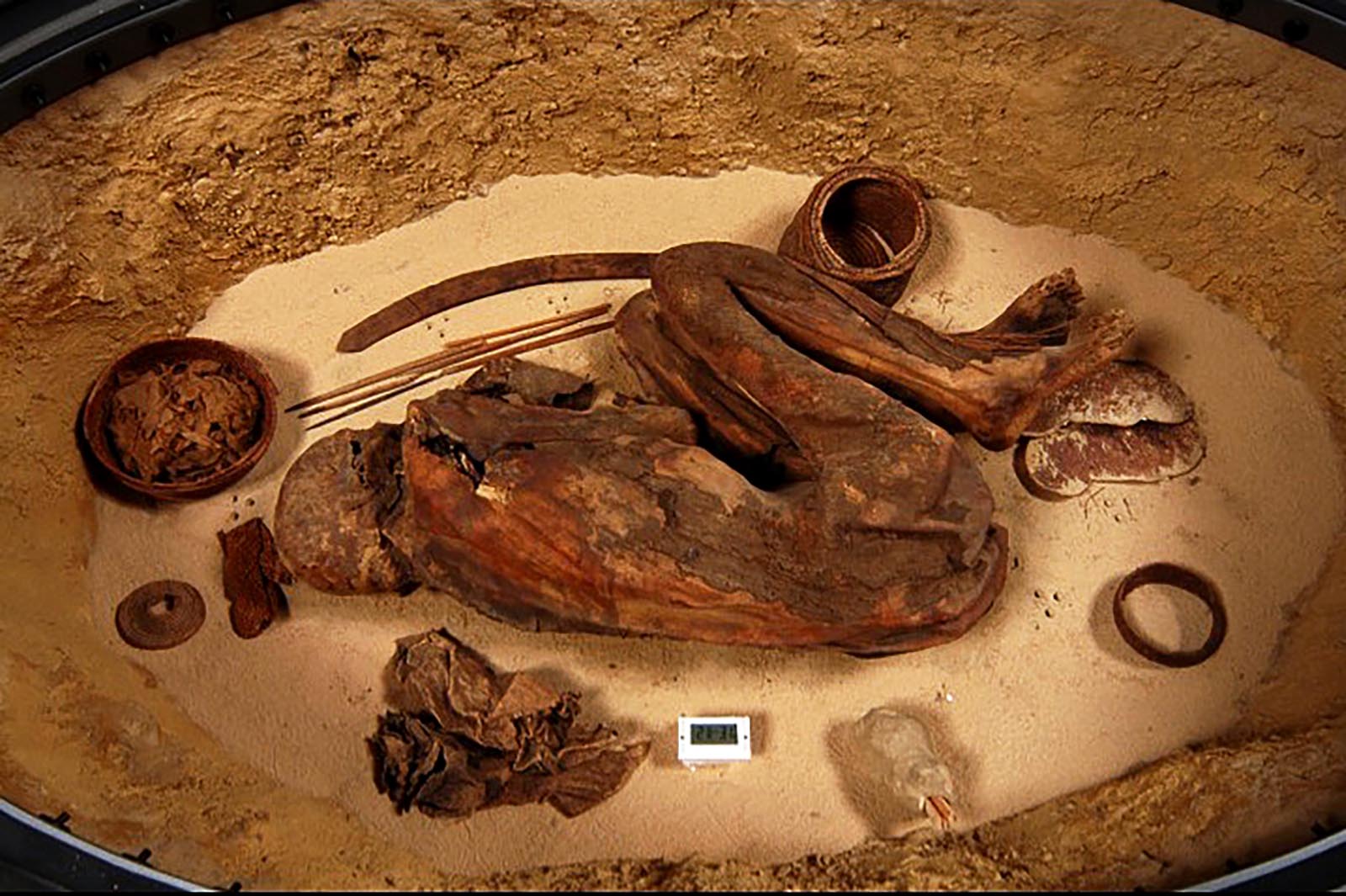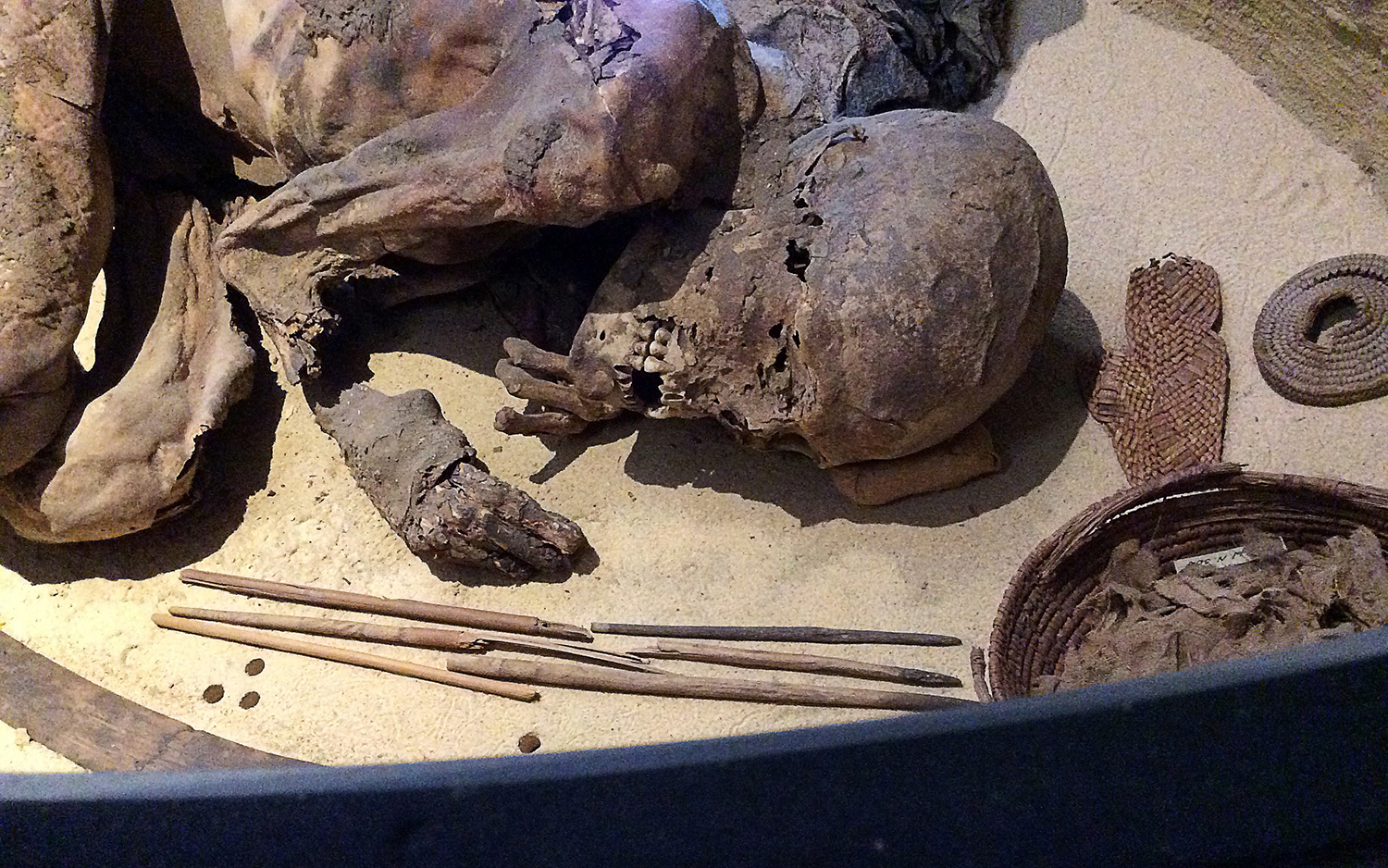Believed to have been laid to rest around 3500 BC or possibly even earlier, in the arid expanse of Upper Egypt’s Gebel el-Gebelen site, the Gebelen Man’s extraordinary preservation is primarily attributed to his direct contact with the scorching, desiccating sands. This natural mummification process stands out as a key factor behind his exceptional state of preservation.

The Gebelen Man, a captivating figure, has defied the relentless passage of time for over 5,500 years. His story serves as a compelling testament to the preservation capabilities of the ancient Egyptian desert, coupled with the modern techniques that empower us to unravel his long-held secrets.

In-depth examinations facilitated by modern technology and advanced 3D imaging techniques have allowed researchers to explore the Gebelen Man’s physical condition with unprecedented detail. These investigations not only highlight his youthful age at the time of death, estimated to be between 18 and 20 years old, but also reveal a minuscule cut discreetly located above his left shoulder blade. Despite its seemingly inconspicuous nature, this tiny injury, barely discernible to the naked eye, carries a narrative waiting to be unveiled.
/__opt__aboutcom__coeus__resources__content_migration__mnn__images__2018__08__shutterstock_667208893-a7def99694614da6a519c8aaa6a1b04b.jpg)
The significance of the Gebelen Man’s burial site adds another layer to the narrative. Placed in the arid expanse, the desert environment played a crucial role in preserving his remains. The dry, hot conditions, along with the direct contact with the sandy terrain, contributed to the mummification process, creating a unique archaeological find that provides invaluable insights into ancient Egyptian practices and the mysteries of human preservation. As researchers continue to unlock the secrets held by the Gebelen Man, the story of this ancient individual unfolds, offering a captivating glimpse into the distant past.